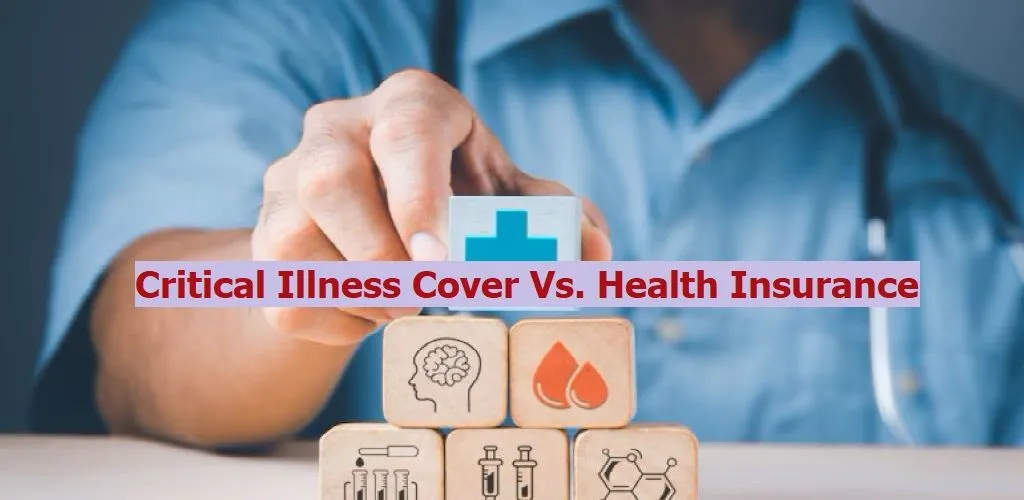The Benefits of Health Insurance Compared to Critical Illness Insurance

The benefits of health insurance and critical illness insurance differ. Comprehensive coverage for medical costs, such as hospital stays, surgeries, prescription drugs, and outpatient procedures, is offered by health insurance. It protects against general healthcare expenses by guaranteeing access to both routine and emergency care.
Conversely, critical illness insurance focuses on paying out a lump sum payment when a specific critical illness, such as cancer, a heart attack, or a stroke, is diagnosed. This sum can be applied to medical care, rehabilitation, or other expenses.
1. Is cancer insurance the same as critical illness insurance?
Despite their similarities, cancer insurance and critical illness insurance are not the same. A specific type of policy that offers financial protection only for cancer-related diagnoses and treatments is called cancer insurance. Benefits for different cancer stages are usually covered, along with potential lump sum payments and medical costs.
On the other hand, critical illness insurance is more comprehensive and offers a lump sum payout in the event that any of the following severe illnesses are diagnosed: cancer, heart attack, stroke, kidney failure, or major organ transplant. Although critical illness policies frequently include cancer, cancer insurance only addresses the risks and expenses associated with cancer.

2. Which is better, life insurance or critical illness?
Life Insurance
A financial instrument known as life insurance pays out a lump amount to your dependents in the event that you pass away. It provides loved ones with financial stability by assisting with living expenses, debt repayment, and educational fees. There are other types of policies, including whole life (lifetime coverage) and term life (fixed period coverage). Particularly if you are the main provider for your family, life insurance guarantees their financial security and peace of mind.
Critical Illness Insurance
Critical illness insurance provides a lump sum payment if you’re diagnosed with a covered serious illness, such as cancer, heart attack, or stroke.This financial support helps cover treatment costs, recovery expenses, or loss of income, ensuring stability during a health crisis. It complements health insurance by addressing high-cost, severe conditions.
Which is better?
Depending on your needs, you can choose between critical sickness and life insurance. Life insurance ensures your family’s long-term security by providing them with financial support after your passing. On the other hand, critical sickness insurance helps compensate for medical expenses and lost wages by providing a lump sum payout in the event of a serious illness diagnosis. Life insurance is preferable if protecting your family is your top priority.
3. Which Insurance Is Better, Critical Illness Cover or Health Insurance?
Because health insurance and critical illness coverage have different functions, the decision between the two will rely on your individual circumstances. Health insurance is crucial for controlling ongoing medical costs and medical emergencies since it offers complete coverage for a variety of medical bills, such as hospital stays, surgeries, and outpatient treatments.
On the other hand, critical illness insurance provides a one-time payment in the event that certain life-threatening illnesses, such as cancer or a heart attack, are diagnosed. Treatment, rehabilitation, or other monetary requirements may be met with this reimbursement. Critical illness coverage is best for serious, expensive illnesses, but health insurance is better for typical medical costs. When both are combined, complete financial safety is guaranteed.
conclusion
In summary, while both critical illness and health insurance are essential for financial planning and healthcare security, their functions are distinct. Health insurance is crucial for daily medical needs because it offers complete coverage for a variety of medical costs, such as hospital stays, doctor visits, and preventive treatment. The goal of critical illness insurance, on the other hand, is to help manage non-medical costs during recovery by providing a lump-sum payout to cover major costs related to serious illnesses like cancer or heart disease.
FAQs
1. Can I have both health insurance and critical illness insurance?
It is possible to have both critical sickness and health insurance. While critical illness insurance offers a flat-sum payment for serious illnesses, health insurance covers routine medical costs. Possessing both guarantees complete coverage, shielding you from the financial load of life-threatening illnesses as well as routine medical expenses.
2. What are the key benefits of health insurance?
Financial protection against medical costs, access to a network of healthcare providers, emergency and preventative care coverage, cashless treatment alternatives, and tax advantages are some of the main advantages of health insurance. It guarantees prompt access to essential healthcare services while easing the financial strain of hospital stays and medical procedures.
3. What are the key benefits of critical illness insurance?
Lump Sum Benefit Pays a lump sum benefit upon diagnosis of a critical illness.
Financial support provides financial support to cover medical expenses, loss of income, and other related costs. Flexibility You can use the lump-sum benefit as you see fit, whether it’s for medical treatment, living expenses, or debt repayment.



